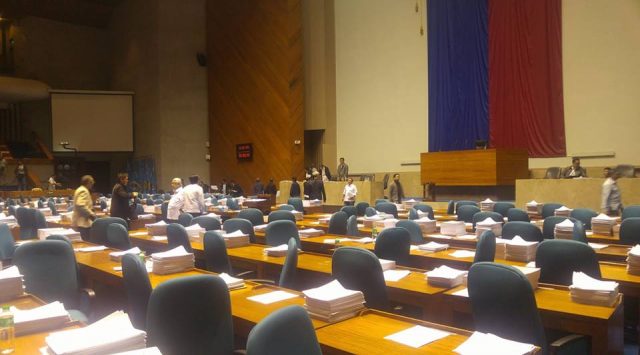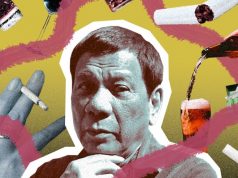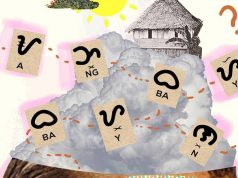
Last December 13, both the Senate and the House of Representatives ratified the bicameral conference committee report of the Tax Reform for Acceleration and Inclusion.
Content aside, it is through a transparent and inclusive legislative process wherein we can ensure that policies that stir this country can be fairly and meaningfully deliberated. Questions hounded the bicameral committee process with provisions that disappeared (e.g. repeal of tax exemption on local coal), and proposals that were not in both versions suddenly appear (e.g. tobacco tax). Though the HoR is known to regularly violate its own rules, it is only with the concession of Senator Sonny Angara, and the rest of the Senate conferees that a bicameral report will reflect these deletions and insertion.
The delay in the ratification highlighted the deletion of the repeal of the Coal Development Act, but failed to put a spotlight on the sudden inclusion of tobacco tax. In an interview, House Ways and Means chair, Rep. Dakila Cua said that the drafting of the bicameral committee report was led by the team of Senator Angara.
The Senate ratified the TRAIN bill with a 16-4 vote, with Senators Aquino, Hontiveros, Lacson and Trillanes opposing it and Senators Angara, Binay, Drilon, Ejercito, Escudero, Gatchalian, Gordon, Honasan, Legarda, Recto, Pimentel, Poe, Sotto, Villanueva, Villar, Zubiri affirming it, while at the House voting was done through viva voce. The validity of the ratification were questioned by Rep. Tinio citing the lack of a quorum and Rep. Zarate highlighting the failure to distribute copies to the members beforehand.
We believe that it’s crucial for us advocates to safeguard the process that shapes a landmark legislation, which would greatly impact our nation’s economy for the next decade or so.
Once again, we must stress that though the ratified TRAIN provides long overdue income tax relief to the rich, the middle class and segments of the working class, the structure remains problematic because of the VAT holes and unevenness in fuel rates. This will abet leakage and illicit trade. In the same vein, vested interests remain entrenched in the aftermath of the concessions related to VAT, fuel, coal tobacco and other measures.
And while this version of TRAIN will yield positive revenue, it falls very short of the target that DOF itself set. This TRAIN will not be able to generate a sufficient amount to finance AmBisyon 2040. This means that spending, especially to fight poverty reduction and promote human development found in the long list of earmarked programs to advance education, health, and social protection, is severely curtailed. These are the programs that will benefit the poor.
Unfortunately, what Congress approved is a bill of empty promises for the poor. The 30% earmarking of additional revenue from TRAIN is way below the needed amount even just for the unconditional cash transfers, which is important for the smooth transition of the poor and the vulnerable to the new tax regime. Clearly, the expected revenue will also not be enough to support the implementation of the bills passed by Congress on Universal Access to Quality Tertiary Education, expansion of universal health care, and other programs investing on human capital.
Worse, it prevents us from achieving our health objectives. To illustrate, TRAIN not only generates a measly P4 billion in 2018 from its proposed minimal increase in tobacco tax — obviously way below the P67 billion needed annually for the next five years to strengthen and expand universal health care — but also makes funding for health uncertain while ensuring the earmark for tobacco interests.
The TRAIN version finalized by the Bicam members, primarily by Senators Angara and Recto, and Rep. Quimbo, has been diverted to protect vested interests. The accommodation of these interests complicate the system as well as create revenue leakage.
1) The retention of the VAT exemption on local coal and the Philippine Amusement and Gaming Corporation (PAGCOR). Failure to repeal the tax exemptions on local coal undermines the country’s international standing as said exemption violates the WTO rules on discrimination and most-favored nation treatment.
2) The introduction of the VAT exemption on prescription drugs will benefit the companies more since it covers the whole value chain and not just to the final consumers.
3) The ambiguous provision on the VAT zero rating of sales of goods and transactions in special economic zones, free ports and tourism zones may create a black hole for revenue, which can result in a loss of P20-60 billion and reward more anti-poor, anti-indigenous people, APECO-like zones in the country. This need not be in the tax code as there are existing laws on special economic zones, free ports and tourism zones.
4) The retention of the VAT exemption for socialized housing maintained for three years before finally implementing a 2M threshold for projects inside and outside Metro Manila will not benefit indigent and homeless Filipinos. Socialized is different from low cost housing.
5) The uneven fuel excise tax rates will abet illicit trade/technical smuggling. It also protects the interests of certain industries, given the very small Php0.33 increase in the aviation fuel rate and the Php1.00 increase in the excise tax for LPG, compared to the other fuel products. Kerosene will increase by Php 3.00 with Php 1.00 increases until 2020, while diesel will increase to Php 2.50 in 2018 and will reach Php 6.00 by 2020.
6) The automobile tax protects the interests of the rich as the effective tax rate of automobiles priced above Php 2 million is lower compared to current rates, thereby giving luxury cars a discount, while raising the prices of basic cars (4% for 600K and below, 10% for 600k to 1M, 20% for 1M-4M, and 50% for 4M and above).
7) The last minute insertion of a Php2.50 increase in tobacco tax is questionable. The insertion takesaway the right and opportunity of the people and the Senate health champions to push for even higher rates that will save more lives. Equally bad is the uncertainty in additional financing for universal health care, as opposed to the guaranteed allocation for the tobacco-growing districts that the bill ensures. Worse, the low tax rate will result in 200,000 new smokers in 2018.
8) Senator Recto and Angara’s dilution of TRAIN was capped by the doubling of the Documentary Stamp Taxes rates. While the measure is expected to generate substantial revenue, it does not transform the tax structure and its impact has yet to be studied. Initial consultations with stakeholders imply that this may adversely affect the ease of doing business in the Philippines.
This compels us to call for the veto of TRAIN’s egregious provisions to ensure that the tax system is truly progressive, fair and efficient.
The ratified TRAIN bill is set to be signed into law by the President next week. We continue to hope that the President will strike out provisions that will be damaging to our tax system and, ultimately, the Filipino people.









